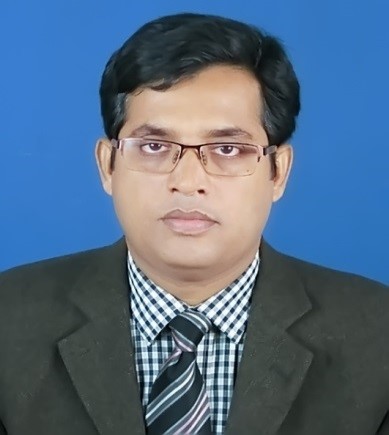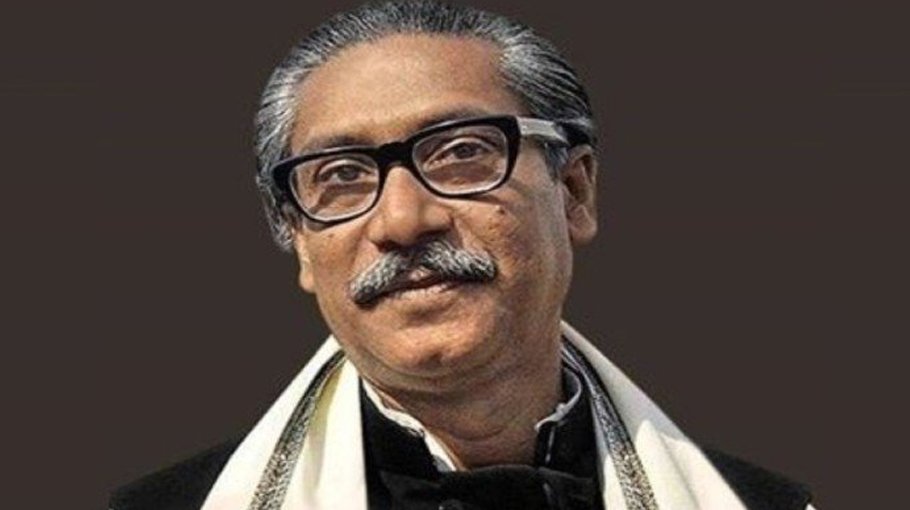A political poetry that transmuted history

History teaches us that the politicians' primary responsibility in every country is to induce people to fight for their motherland and people's welfare even at the risk of their lives. Simultaneously, it is also true that not all politicians can control their constituents by offering speeches that can provide people with a realistic appeal to act in their speeches. Around the same time, very few political leaders could command civilians' loyalty with their multifaceted capabilities to convince them. Bangabandhu Sheikh Mujibur Rahman was such a leader who could build history by organizing civilians into the struggle against Pakistan's military ruler.
Bangabandhu is a name deeply rooted in the emotions of millions of Bangladeshis. He was the kind of leader who developed an enthusiasm for freedom. He was intensely interested in politics since the beginning of his youth. He was a born leader who, for many years, became a fantastic leader. Therefore, it is a formidable task to describe his contribution to Bangladeshi state development with few words of appreciation.
The citizens were seated on the front, and the country waited boisterously for him as he stepped on the dais on March 7, 1971. Bangabandhu was at the height of thousand years of history, taking on the nation's burden. It was his most crucial time, as any frivolous choice might have shattered the campaign's momentum that hit the pinnacle. Although not a formal script, he integrated all conceivable details in his speech. Even though not an official statement of independence, it was an unofficial declaration of independence when he pronounced that "Ebarer sangram aamader muktir sangram, ebarer sangram swadhinatar sangram (This struggle is for our freedom, this struggle is for our independence) at Racecourse Maidan (now Suhrawardy Udyan) in Dhaka with a loud tone at a huge protest. His tone was so muffled that it created a dynamic environment at the Racecourse Maidan. Instinctively, he expressed his genuine emotions using comment people's language and dialect to spur the compatriots to combat the Pakistani dictator. Considering his speech's prominence, the international periodical "Newssweek" titled him a "Poet of Politics" in its cover story published on April 5, 1971. Through his lyrical poetry, he successfully influenced millions of fellow citizens to remain united for the cause of independence of the country.
Bangabandhu delivered his March 7 speech as a
veteran political leader and a
mature diplomat. Instead of issuing
an official declaration, he
used diplomatic jargon to
proclaim independence
His rhetorical style was so orchestral that it generated an emotional boost. His voice could still make people tremble even after 50 years. His speech may still create the same amount of enthusiasm among the people. Considering the message's flagrancy, many compared it to two other great speeches of the world: the 'Gettysburg Address" of Abraham Lincoln and the "I have a Dream" speech of Martin Luther King Junior.
The above discussion highlights the linguistic and emotional aspects of the 7th March speech. One may wonder about the impact of the speech on the country's political struggle for independence. The speech's timing was so exact that this was transmitted at the height of the time when tension straddled highly over East Pakistan's autonomy and West Pakistan's strong political-military Government. Considering the deception of West Pakistani rule, he chose to offer the compatriots the right time to train them for the provincial civil rebellion movement. Taking the conspiracy of the West Pakistani rule into contemplation, he picked the right time to deliver a guideline before the compatriots so that they could prepare them for the civil rebellion movement in the province. Consequently, he pierced the compatriots by saying, "protteck ghore ghore durgo gore tolo" (prepare every house as a fortress).
Having been influenced by his spirit, the audiences started chanting by uttering the slogans "Sab Kother Shesh Kotha, Bangladesher Swadhinata" (The final word is the independence of Bangladesh), and "Bir Bangalee Ostro Dhoro, Bangladesh Swadhin Koro" (Brave Bangalee, Take Up Arms to Make Bangladesh Free). Through his speech, he depicted independence before his fellow citizens. Therefore, he concluded his speech by saying, "Rokto Jokhon Dyechhi, Rokto Aro Debo, Kintu Edesher Manuske Mukto Kore Chharbo Insha-Allah" (Since we have shed blood, we shall shed much until, by the grace of the Almighty, we make people free).
Bangabandhu delivered his March 7 speech as a veteran political leader and a mature diplomat. Instead of issuing an official declaration, he used diplomatic jargon to proclaim independence. He tried to achieve two goals by adoption of a diplomatic approach. First, he sought to encourage compatriots to prepare them for the war. Second, he tried to allow the Pakistani ruler some time to understand the severity of the situation and consider the demands of the citizens of East Pakistan.
The real consequence of the March 7 speech was that President Yahya Khan was compelled to come to East Pakistan to discuss with Bangabandhu to find ways to determine East Pakistan's continued political struggle. Unfortunately, the meeting did not produce a good outcome, as Yahya prepared his army for genocide in East Pakistan. Besides, this eventually took place at midnight of March 25 in the name of "Operation Searchlight", which killed thousands of innocent Bangalis that finally shut the doors for further negotiation. Such atrocities compelled Bangabndhu to formally declare Bangladesh's independence in the early hours of March 26 before being arrested by the Pakistani army.
This speech's political impact was dazzling, as different parties and lobbies pressured him to decide directly on the ongoing protests. He thus picked the moment when the people's feeling of injustice was up in the sky. Besides, the Pakistani Government refused to delegate the state power to Sheikh Mujib, despite an overwhelming win in the 1970 election. The gravity of the situation was thus very sensitive, as any slip may have endangered the momentum. That is why, with simple language, Bangabandhu was cautious in proclaiming an informal declaration of independence through the March 7 speech. His dedication and honesty inspired the listeners.
Finally, the 7th March speech altered Bangladesh's trajectory by uniting the whole nation to combat the Pakistani ruler to fulfil the long-awaited desire to become an independent country. The importance of this speech is so vital that a renowned historian Jacob, F. A. Field documented it as one of the world's eminent addresses in his book entitled "We Shall Fight on the Beaches: The Speeches That Inspired History". The speech continues to have the same influence until today. That is why, in 2017, UNESCO recognized Bangabandhu's 7th March speech as part of the world's documentary heritage. The admiration has extended the limits of expression beyond Bangladesh and left the whole world inspired.
Pranab Kumar Panday, PhD, is a Professor of Public Administration at the University of Rajshahi.



